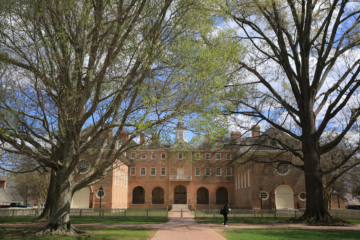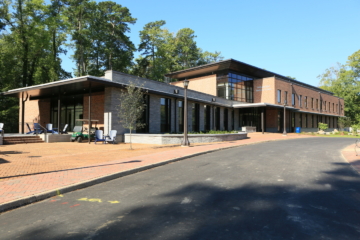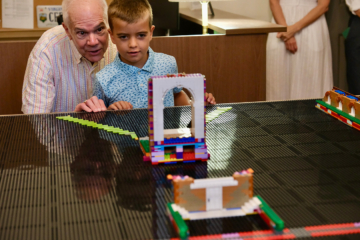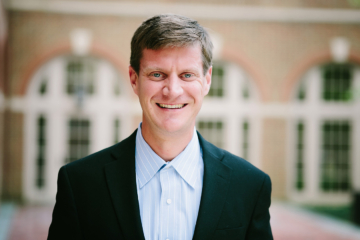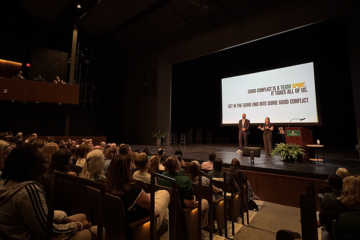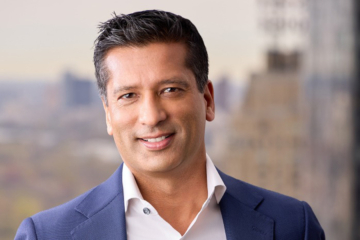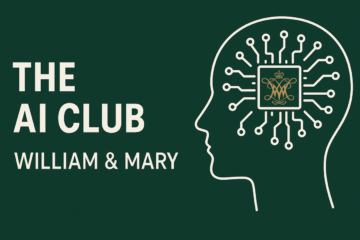Strategic Cultural Partnerships Faculty Fellows reshape America’s founding story as 2026 approaches
As the nation prepares to celebrate its 250th anniversary in 2026, William & Mary’s Strategic Cultural Partnerships (SCP) has empowered eight faculty to launch projects that range from exploring the diplomatic contributions of Indigenous leader Cockacoeske to teaching immigrant families civic skills through theatre.
Ann Marie Stock is the presidential liaison for Strategic Cultural Partnerships and was instrumental in establishing Faculty Fellowships as a signature initiative of the division. “This year’s cohort embodies what SCP makes possible at W&M — scholarship that engages students and citizens alike to tackle the most pressing questions of our time,” Stock said. “The Faculty Fellowship program continues to reshape how our community, our Commonwealth and our nation understands itself as we approach this milestone anniversary.”
In its fourth year, the SCP Faculty Fellowship program, powered by the generosity of private philanthropy, supports innovative projects that use research, teaching, and collaboration to generate new knowledge, advance understanding, and create common ground to build a more just world. This year’s cohort falls into two complementary themes: expanding stories from America’s founding era and strengthening civic leadership for the future.
Our shared national origin story
Three SCP fellows are working to broaden whose stories get told in America’s founding narrative.
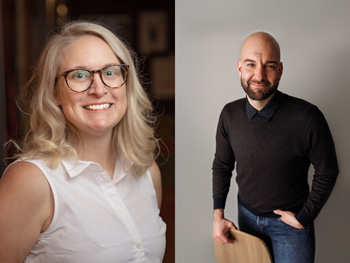
Marcus Holmes, professor and chair of government, will lead a student-driven project exploring Indigenous diplomacy in colonial Virginia, using international relations theory to examine relationships between Native leaders and English colonists. “Our project insists that figures like Cockacoeske and institutions like the Brafferton Indian School deserve central roles in the 2026 narrative,” Holmes said. “By reframing these moments through an interdisciplinary lens, we hope to broaden public understanding of diplomacy and show that trust-building is not just a modern concept.”
Adjunct Professor of History Holly White is launching The Children of the American Revolution Project (CARP), a public history initiative for K-6 students highlighting children’s often-overlooked roles in the Revolution. “There have been so many times that I’m reading, teaching, or engaging with scholarship and think: the person we’re studying was actually a child,” White said. “How does acknowledging that change our understanding of that historical moment?”
Phil Wagner, clinical associate professor at the Raymond A. Mason School of Business, is integrating five museum partnerships into his Organizational Reckoning Winter Seminar, a course offered through the Washington Center. The course examines how cultural institutions confront legacies of harm and decide whose stories get preserved. “Museums have become increasingly important public actors in that conversation,” Wagner said. His goal: create a toolkit other educators can use to turn museums into more effective teaching spaces.
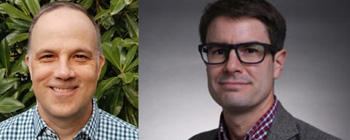
From ancient roots to modern practice
Four additional fellows are connecting America’s classical foundations to contemporary democratic challenges.
Mitch Brown, assistant professor of classics, is investigating how Greek and Roman antiquity influenced Thomas Jefferson and George Wythe, examining how their classical education shaped founding democratic ideals. “My research illuminates how ancient Greek and Roman ideas forged their philosophies on governance,” Brown said, “and, in turn, guided their actions as Founding Fathers.”
Paul Manna, the Isabelle and Jerome E. Hyman Distinguished University Professor of Government, is expanding his partnership with the Cape Charles Rosenwald School Restoration Initiative (CCSRI), to develop training programs to help community members engage more effectively in civic processes. “The idea of helping people sharpen their skills to participate more effectively in policy debates embraces the overall spirit of the Declaration of Independence,” Manna explained.
A trio of professors representing sociology, the School of Education and the Department of Theatre and Performance — Jennifer Bickham-Mendez, Katherine Barko-Alva and Sarah Hart — are expanding the Aprendiendo Juntos initiative, using participatory theatre integrated into English-learning workshops to empower immigrant families. “Participatory theatre techniques not only promote the development of English language skills,” Hart explained, “but strengthen intercultural and intergenerational relationships by encouraging creative expression, enhancing communication and building self-confidence.”
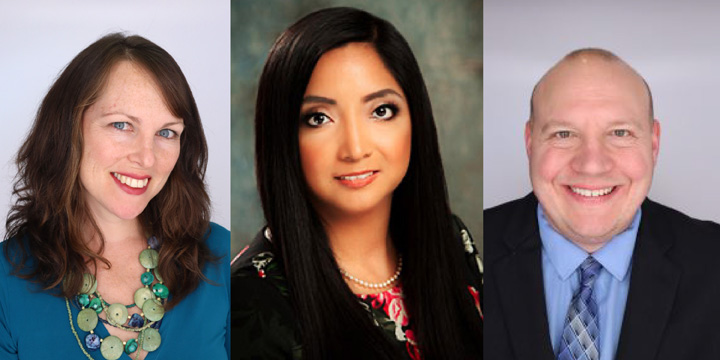
Mark Hofer, senior director of the W&M Learning & Design Lab, oversees the Faculty Fellowships program from Strategic Cultural Partnerships. Hofer said this year’s projects exceeded expectations. “We suspected this year’s work approaching 2026 would be both interesting and impactful,” Hofer said.
The collective impact of these projects will extend far beyond individual research. As the semiquincentennial approaches, these SCP-supported initiatives will leave tangible legacies – communities equipped with stronger civic leadership tools, new teaching resources, deeper museum partnerships, and citizens who understand the richness and complexity of America’s founding story.
“Our fellows are embodying the liberal arts and sciences tradition at William & Mary of asking fundamental questions about how we commemorate our past while building our future,” Hofer said. “These projects will help build citizens ready for the next 250 years of our nation.”
Latest W&M News
- Student Health Center continues exceptional student care with AAAHC reaccreditationAAAHC accreditation, held by only seven universities in Virginia, recognizes the university's commitment to providing exceptional student-centered care.
- Brick by brick: W&M community to build model of its Historic CampusWilliam & Mary has launched a yearlong project to build a Lego model of its Historic Campus with the help of students, faculty, alumni and the Williamsburg community.
- Finding meaning in the danger zoneDavid Long explores how near-death experiences transform work through storytelling.
- Conflict as a catalyst for growth: W&M’s 2025 Professional Development DaysWilliam & Mary’s second annual Professional Development Days focused on navigating conflict.
- Energy sector leader Darpan Kapadia ’95 to speak at Opening ConvocationDarpan Kapadia ’95 will welcome new William & Mary students this month at Opening Convocation.
- Bridging the digital divideTucker Peters ’28 launches W&M's first AI club.



